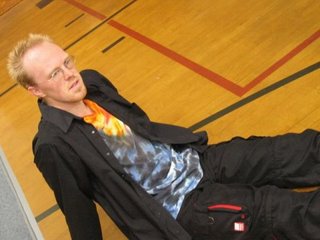So much of the modern experimentation in jazz springs—as far as Negro jazz modernists are concerned—from a misplaced shame over the so-called low-class origins of jazz. These are usually men of Negro middle-class background who have some formal training in music and who would like for jazz to be a “respectable” form of expression tied up with other forms of revolt. They'd like to dry up the deep, rowdy stream of jazz until it becomes a very thin trickle of respectable sound indeed. (27–28)
—Ralph Ellison, Shadow and Act
I feel, this weekend after Rhythm Method, that I have wanted to be a “good” dancer, but haven't quite been able to articulate what my real goal was. I can now say definitively that my goal is not to be a good dancer; my goal is to be a meaningful dancer. I want my dancing to be not simply a pursuit of my intellect, nor even just a manifestation of my artistic spirit. I want dance to touch the essence of my humanity. Ellison, in his interview That Same Pain, That Same Pleasure, goes on to talk about a humanity of Negro Americans that he portrays in his writing—a humanity that he felt was missing from the depiction of Negroes in the great American literature of his time—and, I believe, a humanity that can be exposed in the raw energy of street dancing:
… during graduation week countless high-powered word artists, black and white, descended upon us and gathered in the gym and the chapel to tell us in high-flown words what the Negro thought, what our lives were and what our goals should be. … Well, the Negro farm people from the surrounding countryside would also come to the campus at the same time. Graduation week was a festival time for the surrounding Negro community, and very often these people would have children and relatives taking part in the ceremonies in progress in the chapel and the gym. But do you know that while the big-shot word artists were making their most impressive speeches, the farm people would be out on the old athletic field dancing square dances, having picnics, playing baseball and visiting among themselves as though the ceremonies across the wide lawns did not exist; or at best had no connection with the lives they led. Well, I found their celebrations much more attractive than the official ceremonies and I would leave my seat in the orchestra and sneak out to watch them; and while my city background had cut me off from the lives they led and I had no desire to live the life of a sharecropper, I found their unrhetorical activities on the old football field the more meaningful. (37–38)

